Scuba diving is an incredible hobby that is safely enjoyed by millions of people every year.
It is the best way to see the wonders that are only found underwater and the closest that most of us will ever get to the feeling of weightlessness found in space.
While most people who have the desire and courage can scuba dive, some cannot.
Some of the reasons why someone shouldn’t scuba dive are solvable, but sadly, they can’t be overcome in a few cases.
We’re going to go through the different reasons why someone shouldn’t scuba dive and see what, if anything, can be done about them.
- 1. Someone Who Isn’t Old Enough
- 2. Someone Who Is Pregnant
- 3. Someone Who Has a Disqualifying Medical Condition
- 4. Someone Whose Health Has Changed
- 5. Someone Whose General Fitness Levels Are Poor
- 6. Someone Who Is Doing It for Someone Else
- 7. Someone Who Is Under the Influence of Drink or Drugs
- 8. Someone Who Is Sick
- 9. Someone Who Is Overly Tired
- 10. Someone Who Has a Plane To Catch or Needs to Travel to Altitude
- 11. Someone Who Can’t Swim
- 12. Someone Who Doesn’t Have a Buddy
- 13. Someone Who Has Dived Too Recently
- 14. Someone Whose Equipment Is Faulty or Unsuitable for the Conditions
- 15. Someone Who Isn’t Certified
- 16. Someone Who Isn’t Suitably Experienced, or Ready for the Dive
- 17. Someone Who Doesn’t Feel Like This Dive Is for Them
- Conclusion
- You Might Also Like…
Disclosure: this post contains affiliate links (clearly marked with ), which means we may earn a commission if you buy something through them, at no additional cost to you.
1. Someone Who Isn’t Old Enough
The first barrier to scuba diving is age.
There isn’t an upper age limit to scuba dive.
However, there are minimum age requirements.
The very youngest that someone can try scuba diving is eight years old.
At this age, they can take part in a carefully controlled underwater experience dive with an instructor that is limited to 12 feet / 4m depth.
The youngest that someone can become a certified diver is ten years old.
While they take part in the regular diver certification course and meet the same performance standards as adult divers, anyone who is 10 or 11 is limited to a maximum depth of 40 feet / 12m.
They must also always dive under the supervision of a parent or an instructor.
Children between 12 and 18 can dive to the standard entry-level depth of 60 feet / 18m but must be supervised by an adult.
2. Someone Who Is Pregnant
Scuba diving isn’t recommended for anyone who is pregnant or for someone who is actively trying to become pregnant.
It is believed that fetus health may be put at risk during a scuba dive, so it is recommended that it be avoided entirely.
3. Someone Who Has a Disqualifying Medical Condition
There are several medical conditions that can stop you from scuba diving.
When learning to dive, students have to complete a medical screening form that is used to check for specific problems so that they can discuss them with a doctor.
This form covers what it calls temporary, relative, and severe risk conditions.
In general, someone suffering from a severe risk condition will not be able to scuba dive.
Relative risk conditions may be manageable with, for example, a change in medication or limits to the depths the diver can go to.
Temporary risk conditions are problems that will stop someone diving until they are resolved through treatment.
In all cases, you should talk directly to a specialist diving doctor for advice.
Scuba diving places extra stress on the body and can create problems that don’t exist or are under control on land.
It is essential that a doctor experienced in diving medicine thoroughly reviews any problems highlighted by the form.
4. Someone Whose Health Has Changed
As we get older, our health can change.
Just because someone was fit and healthy when they got their certification doesn’t mean they have remained so years later.
You should review your health, and if necessary, get checked by a doctor to make sure that you’re still fit to dive.
Diving could be riskier for older people, and the Divers Alert Network recommends that divers over the age of 45 take a medical with a scuba doctor once a year to make sure that any increased dangers are managed.
5. Someone Whose General Fitness Levels Are Poor
There aren’t weight limits to scuba dive.
However, reasonable overall fitness levels are required.
The medical screening form asks if you would “struggle to perform moderate exercise” (for example, walk 1.6 kilometers / one mile in 14 minutes or swim 200 meters/yards without resting).
If this sounds like it might be a problem, then it would be best to get in some cardio exercise before you try scuba diving.
6. Someone Who Is Doing It for Someone Else
We think that scuba diving is worth it, but we have to be honest and say that the training can be challenging, and sometimes just setting up and carrying the equipment can be hard work.
It’s up to everyone individually to decide if scuba diving is worth it for them.
However, one of the very worst things you can do is to force yourself to dive because someone else wants you to.
Pushing yourself to scuba dive to make a partner, friend, or relation happy is a sure-fire way not to enjoy the activity.
7. Someone Who Is Under the Influence of Drink or Drugs
Scuba diving and being under the influence of alcohol or drugs is incredibly dangerous and must never be undertaken.
Both can cause poor judgment or impaired coordination underwater, which could be deadly.
Alcohol and drugs enhance the physiological and physiological issues specific to scuba diving, and accidents are more likely to occur.
The effects of narcosis underwater can be dramatically increased to a potentially unmanageable level.
8. Someone Who Is Sick
Diving when you are sick increases the risk of injury.
For example, diving with a cold or congestion makes it more likely that you’ll suffer a squeeze injury.
Other illnesses can make you more susceptible to decompression sickness.
If you’re not feeling well, it’s usually best to leave the diving until you are better.
9. Someone Who Is Overly Tired
Diving when you are tired can make you more prone to decompression sickness.
A good night’s sleep before you dive is a great way to be both mentally and physically ready to enjoy the dive to the maximum.
10. Someone Who Has a Plane To Catch or Needs to Travel to Altitude
Unfortunately, if you have an airplane booked or a trip up the mountains scheduled, then you shouldn’t be scuba diving.
Flying after diving can be very dangerous unless you leave a suitable amount of time after getting out of the water.
Typically, it’s advised to leave at least 24 hours between the end of your last dive and the start of your flight.
Similarly, you also need to leave an appropriate interval before you travel to a high altitude.
11. Someone Who Can’t Swim
You need to be able to swim to become a certified scuba diver.
So that you will be safe and enjoy scuba diving with a buddy, you need to be comfortable in the water and meet basic swimming requirements.
However, it is possible to take discovery scuba dives with an instructor without being a swimmer if you want to see what diving is like.
12. Someone Who Doesn’t Have a Buddy
To be completely accurate, solo diving certifications are available.
However, as well as needing special training, they also mean that you have to dive with extra, expensive equipment, so you are carrying a backup to cope with anything going wrong.
Diving with a buddy is fun, as well as making things safer.
For normally certified recreational divers, a buddy is essential.
13. Someone Who Has Dived Too Recently
Every scuba diver needs to leave a suitably long surface interval between their dives to allow the absorbed nitrogen to escape in a controlled way.
The length of the surface interval needed will depend on the dive you’ve done and the dive you are planning, taking into account their depths and dive times.
Historically, divers would work out surface intervals on dive tables, but nowadays, you’ll find that your dive computer can help you work out how long you need to stay dry.
14. Someone Whose Equipment Is Faulty or Unsuitable for the Conditions
It should be obvious to say that you shouldn’t dive if your equipment is faulty.
However, you also need to make sure that your gear is suitable for the dive you are planning.
For example, if you are diving in cold water, you will need a suitably thick exposure suit.
Getting cold when you dive doesn’t just make you feel miserable.
It can also make you more susceptible to decompression sickness.
Regulators also need to be suitable for the water temperature as you can only use some types in warm water.
You also need to ensure that you are carrying sufficient gas in your tank and that it is the appropriate mix for the dive you’re planning.
15. Someone Who Isn’t Certified
All divers need to be certified to be safe underwater, and you cannot teach yourself to dive.
Someone who isn’t certified needs to stick with the introductory dive experience programs until they take the complete course.
16. Someone Who Isn’t Suitably Experienced, or Ready for the Dive
Diving beyond the limits of your training or experience is an excellent way to get into trouble underwater.
Going too deep or making a dive in conditions that are too advanced for the least experienced buddy can create situations that can quickly cause diving accidents.
All recreational divers should assess the dive they are planning to make sure that it is suitable for them and their buddy.
They should also consider their recent diving experience.
Just because an advanced dive has been acceptable in the past when you used to dive often doesn’t mean that it will be now that you don’t get in underwater so much.
17. Someone Who Doesn’t Feel Like This Dive Is for Them
Anyone should be able to skip a dive at any time.
If you don’t feel that the dive is for you for whatever reason, then leave it.
There will always be another opportunity.
Conclusion
It might sound as if there are a considerable number of reasons why you shouldn’t scuba dive, but most of them are a case of acting sensibly and keeping on top of your health and fitness.
The question “Who Can Scuba Dive” really is answered by saying “almost anyone!”.
If inspiration is needed, then this incredible video of scuba diving in a wheelchair shows just what can be achieved if someone wants it badly enough.
You Might Also Like…
-

How Do Scuba Divers Drink Water? 5 Possible Ways (+7 Tips)
-

How Long Can Scuba Divers Stay Underwater? (+9 Limiting Factors)
-
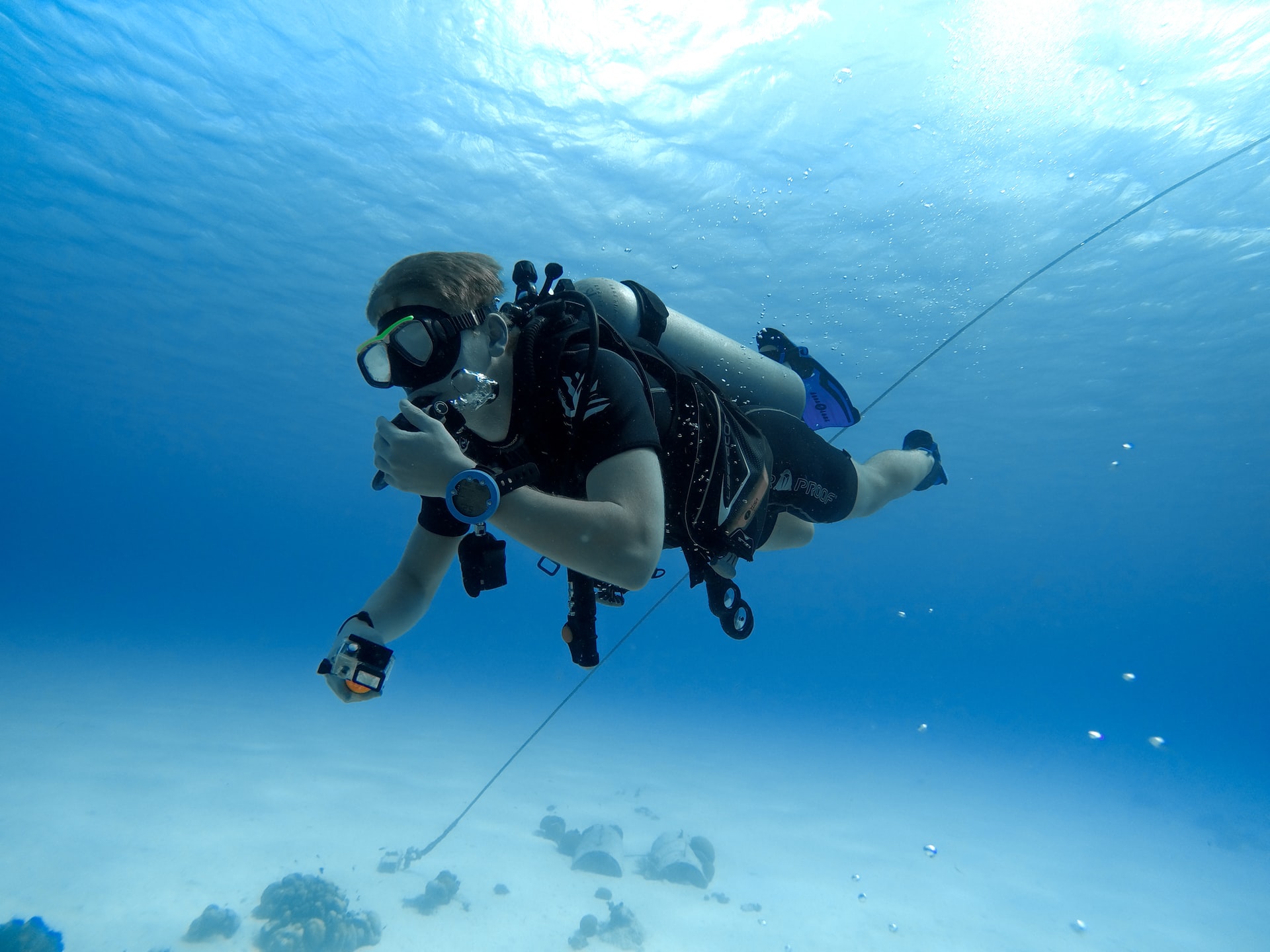
Are Scuba Divers Athletes? All the Facts (+New Competitive Forms)
-
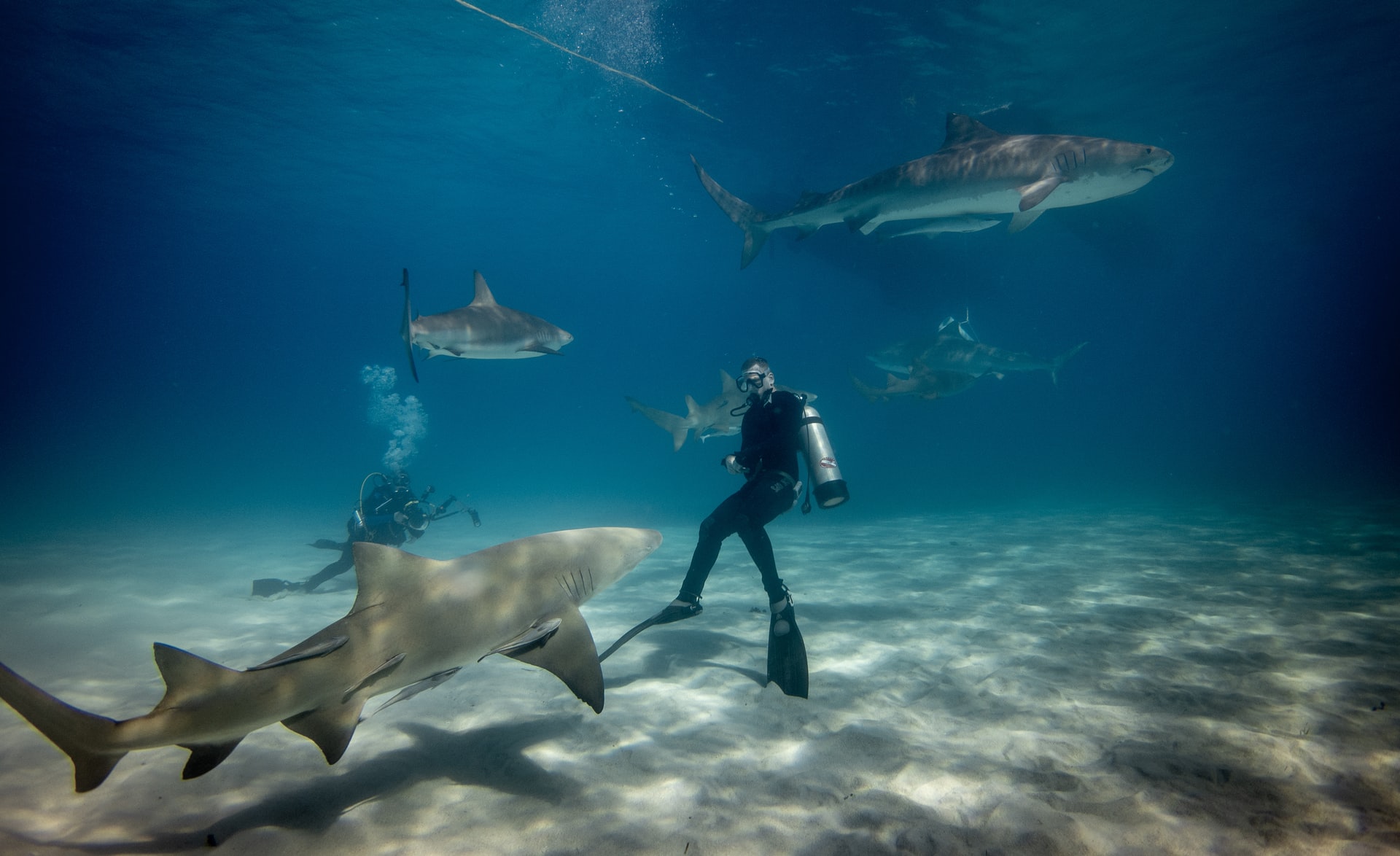
Are Sharks Scared of Scuba Divers? (What Every Diver Must Know)
-
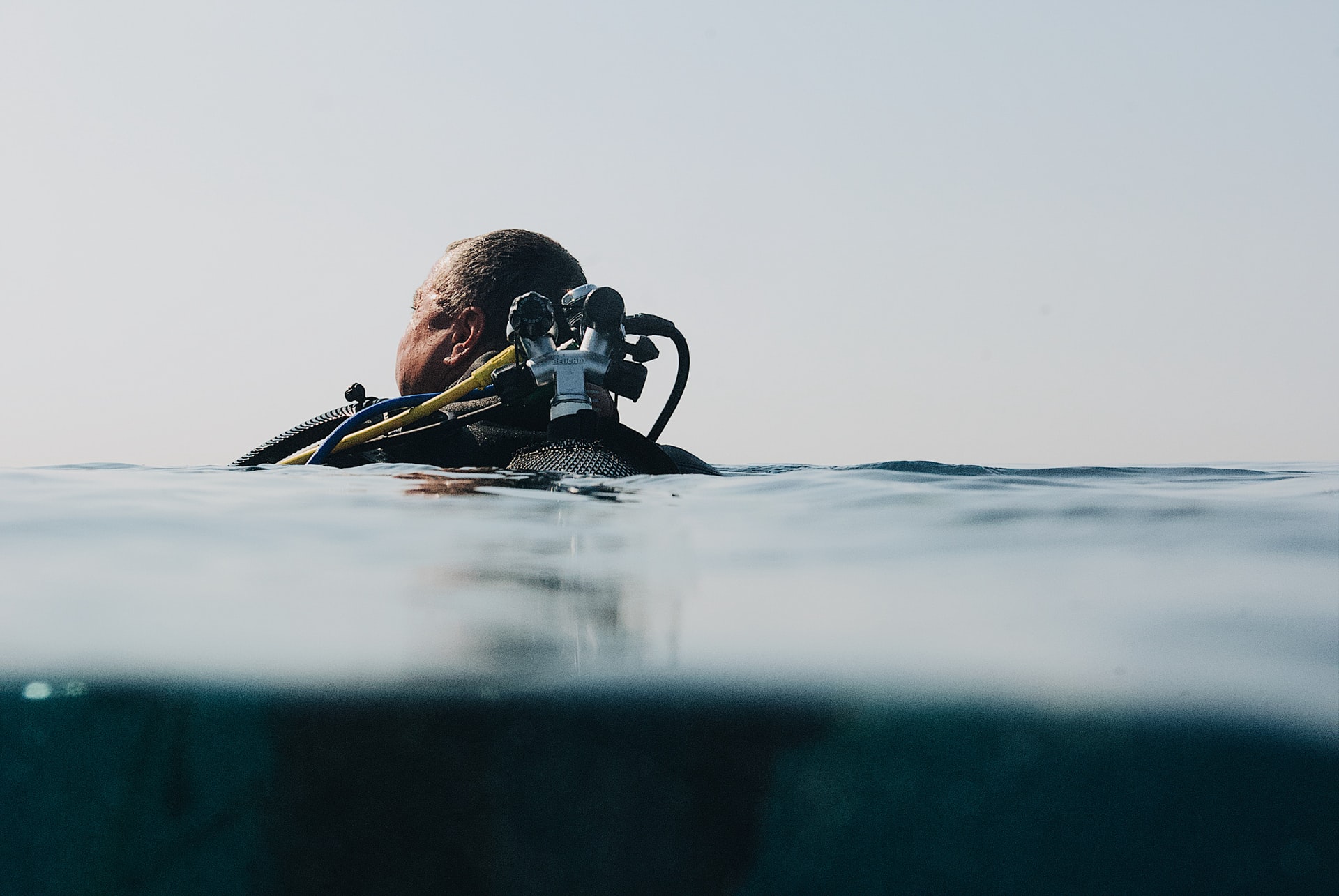
Who Should Not Scuba Dive? 17 Reasons (Every Diver Should Know)
-
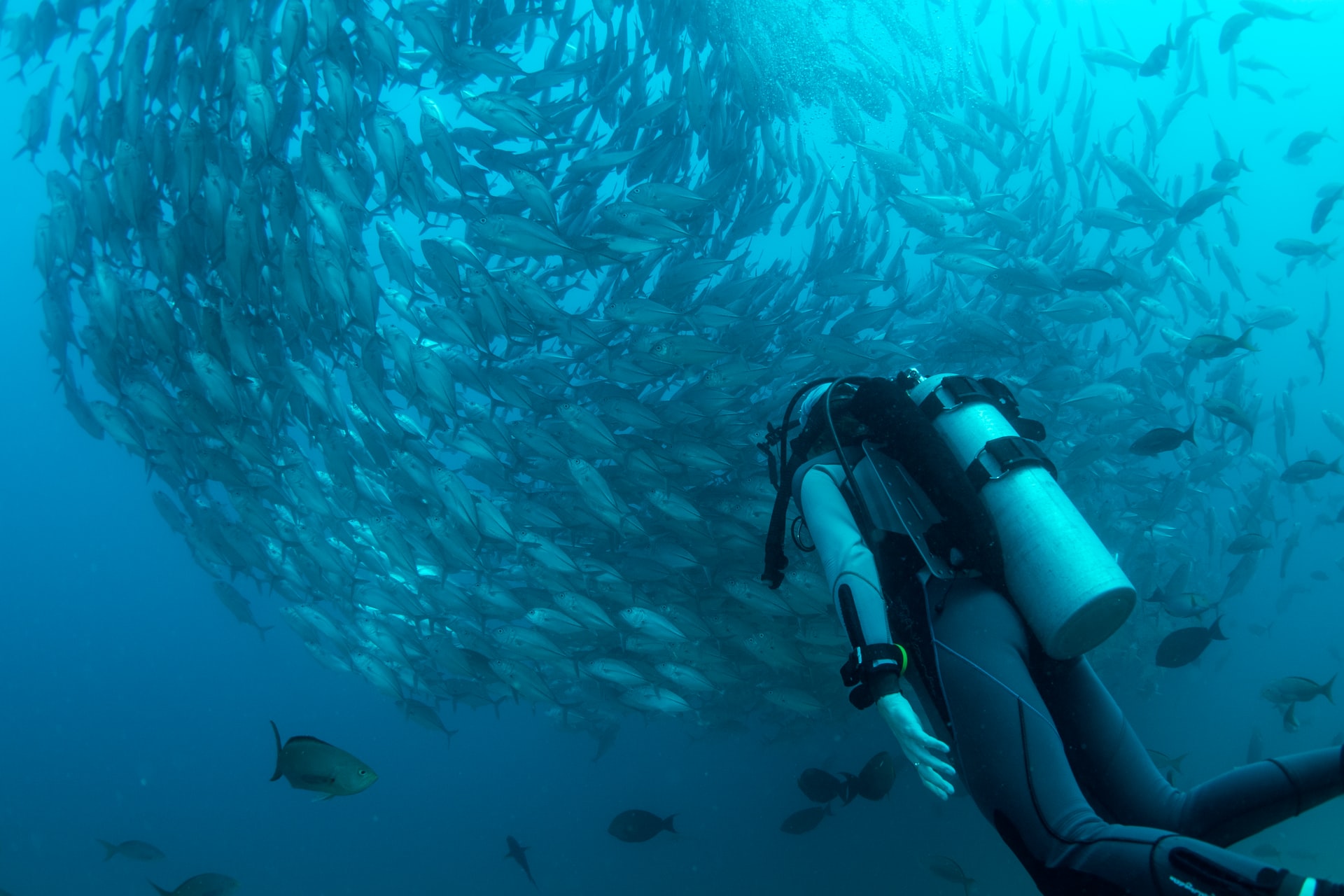
Should I Be Scared of Scuba Diving? 8 Common Fears (Debunked)
-
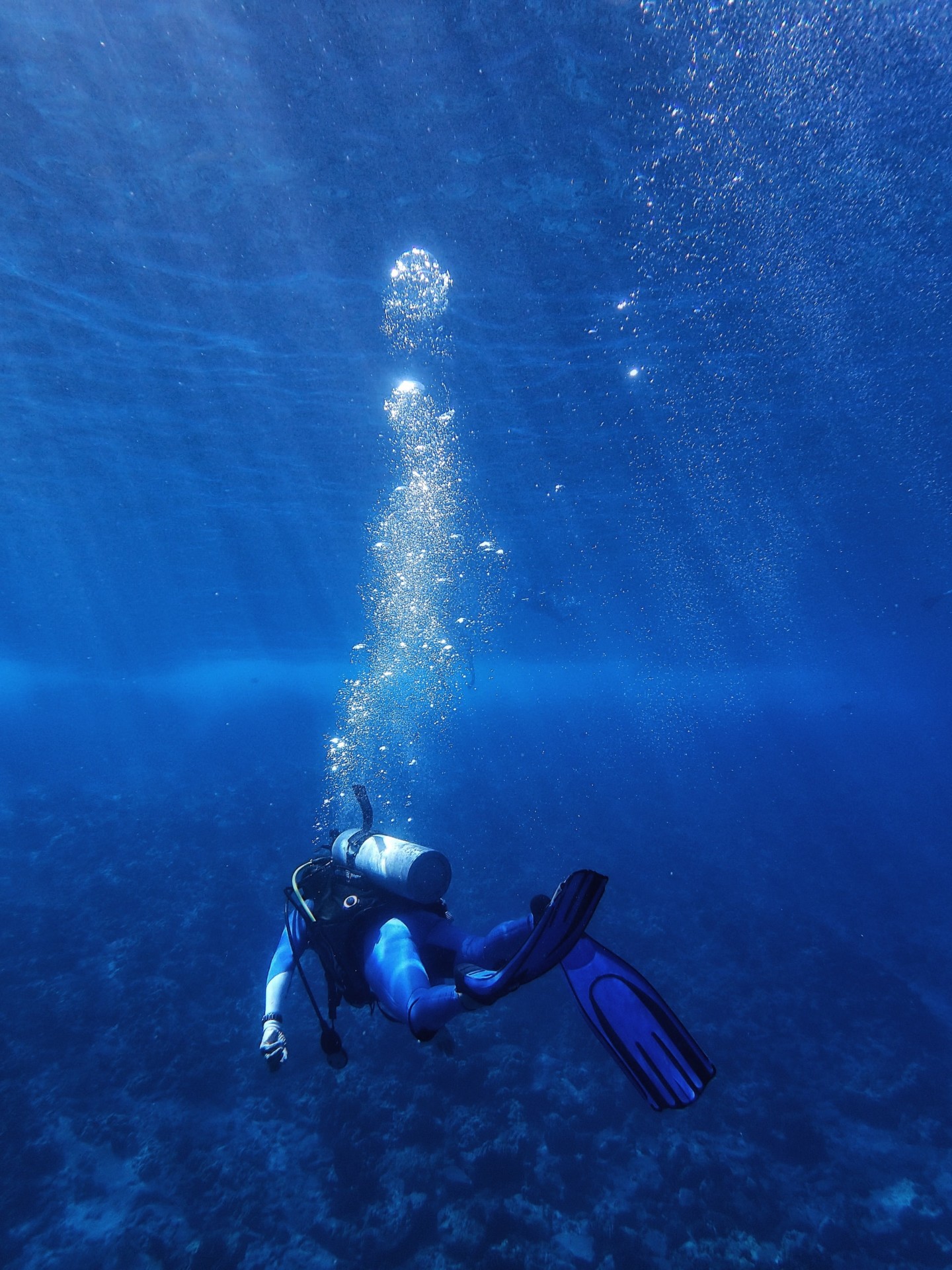
Why Do Scuba Divers Use More Air at Depth? (+4 Practical Tips)
-
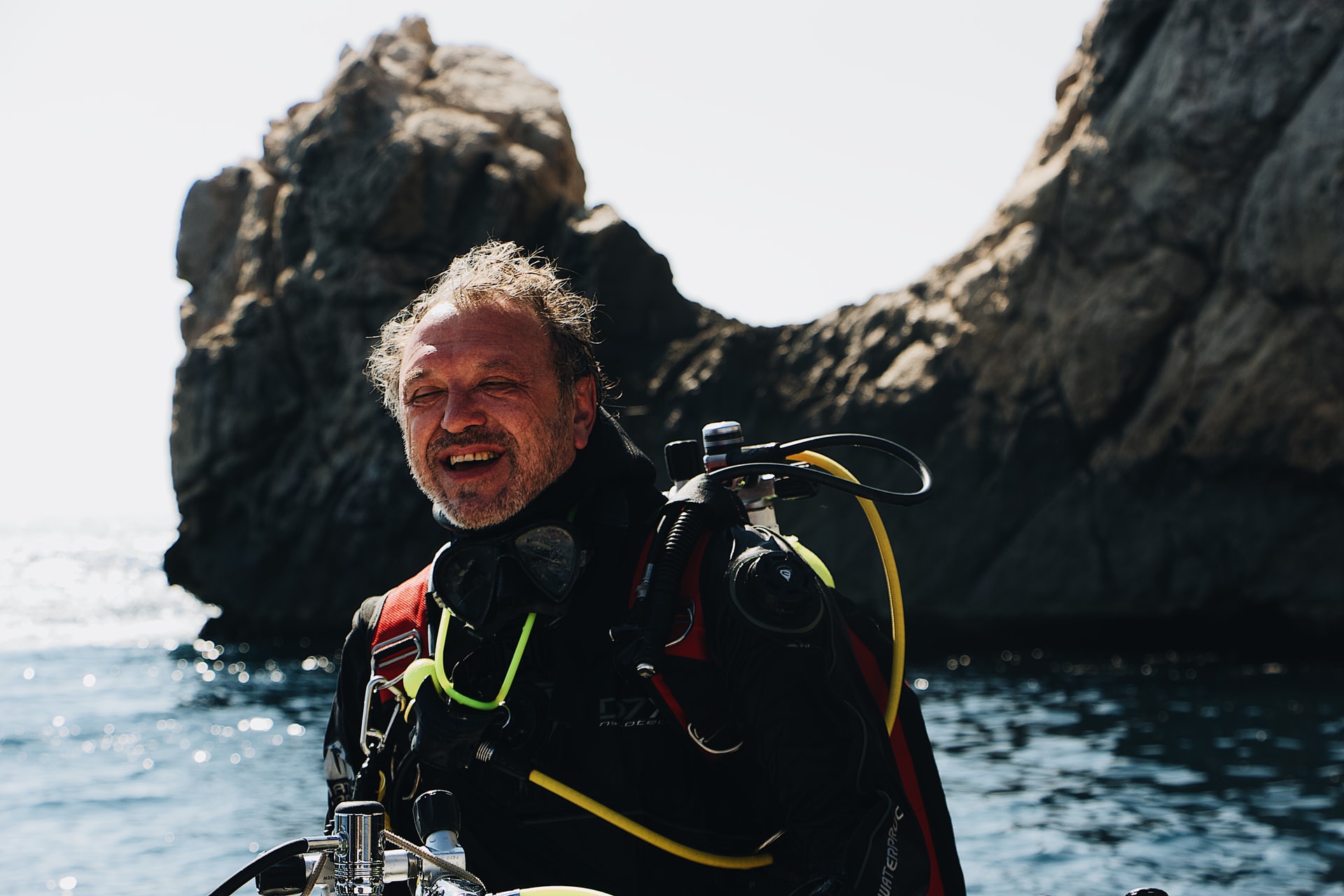
At What Age Should You Stop Scuba Diving? (+9 Tips for Older Divers)
-
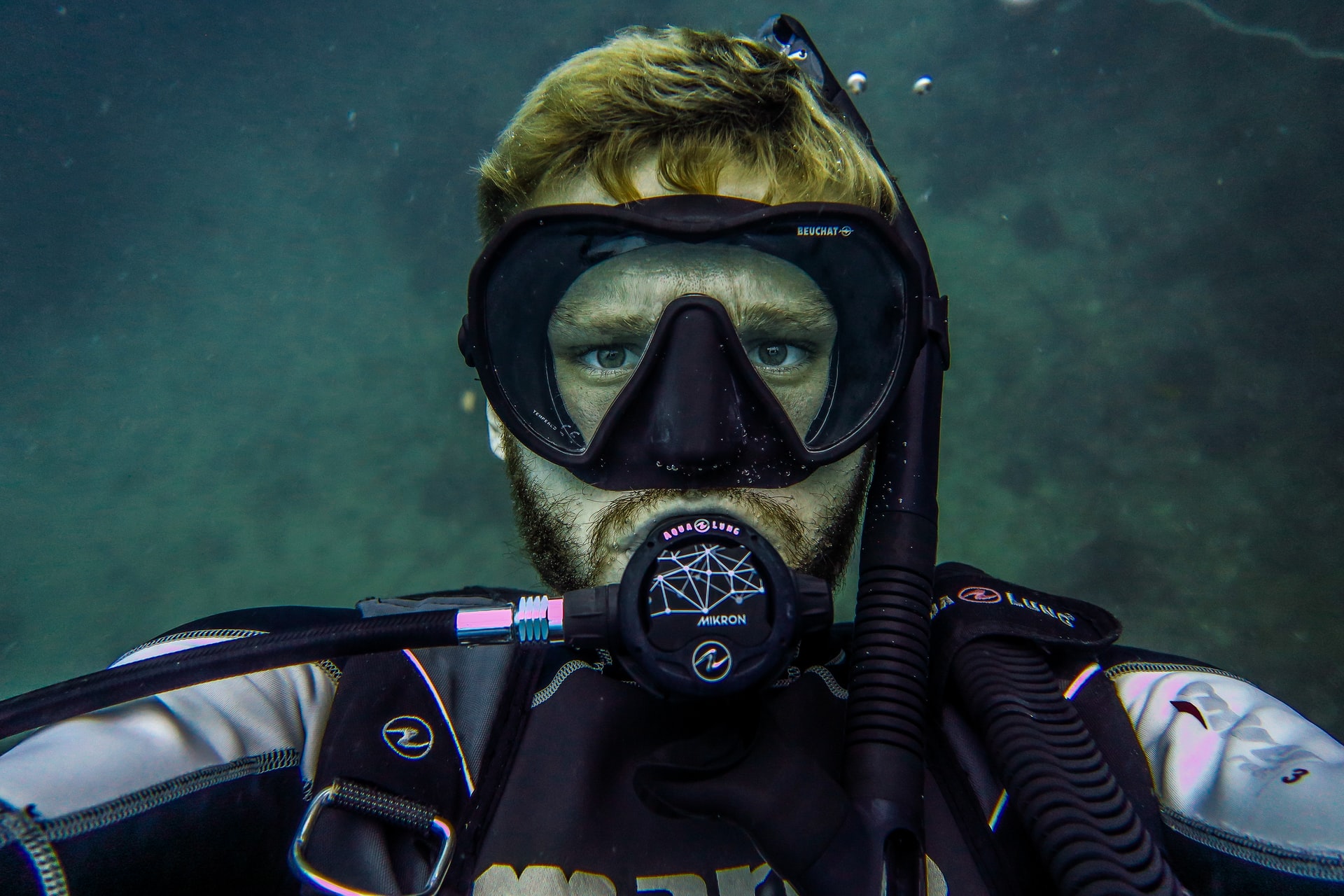
Should I Shave Before Scuba Diving? Crucial Facts (+9 Helpful Tips)
-
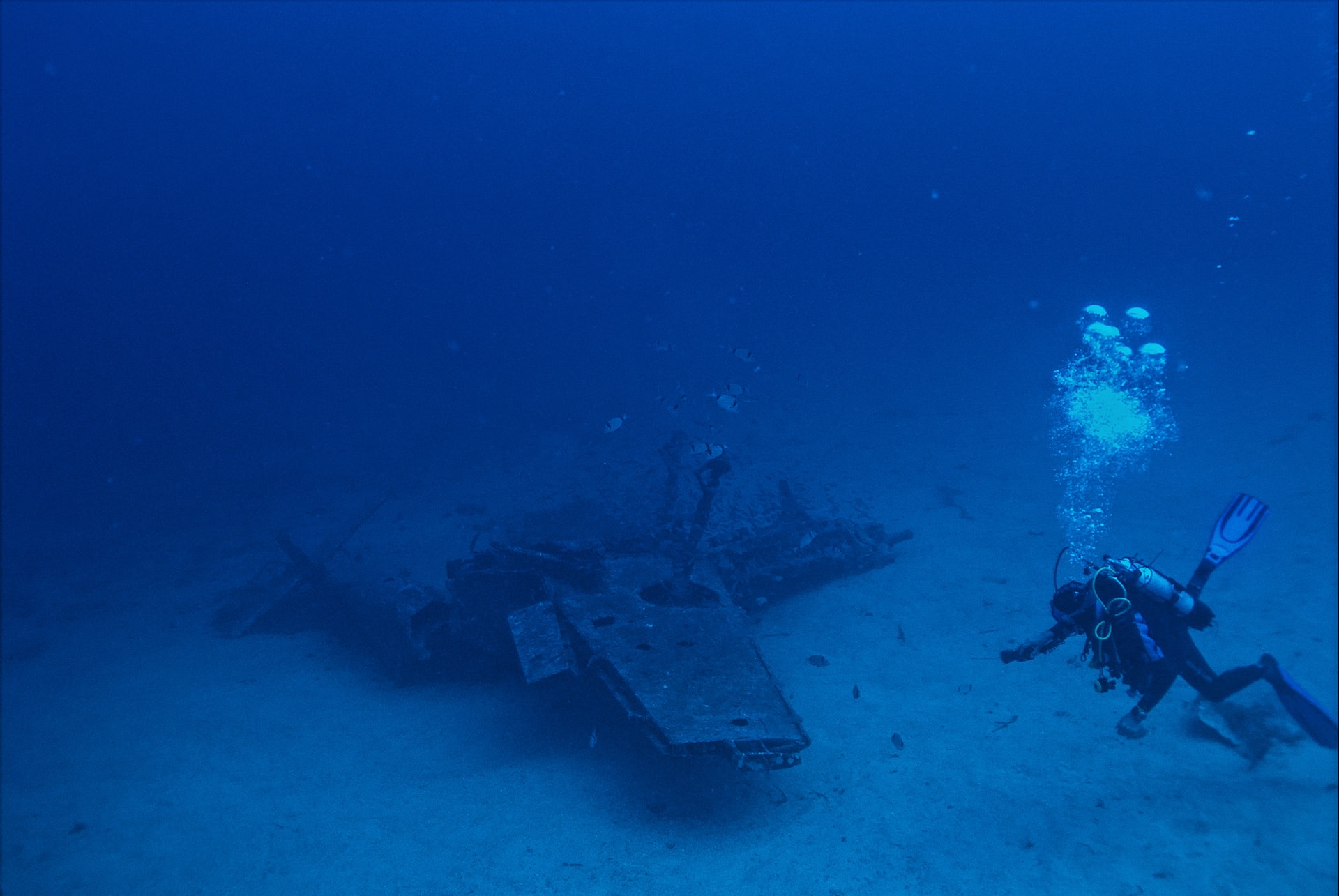
Why Do Scuba Divers Use Helium? (+Its Pros & Cons)
-
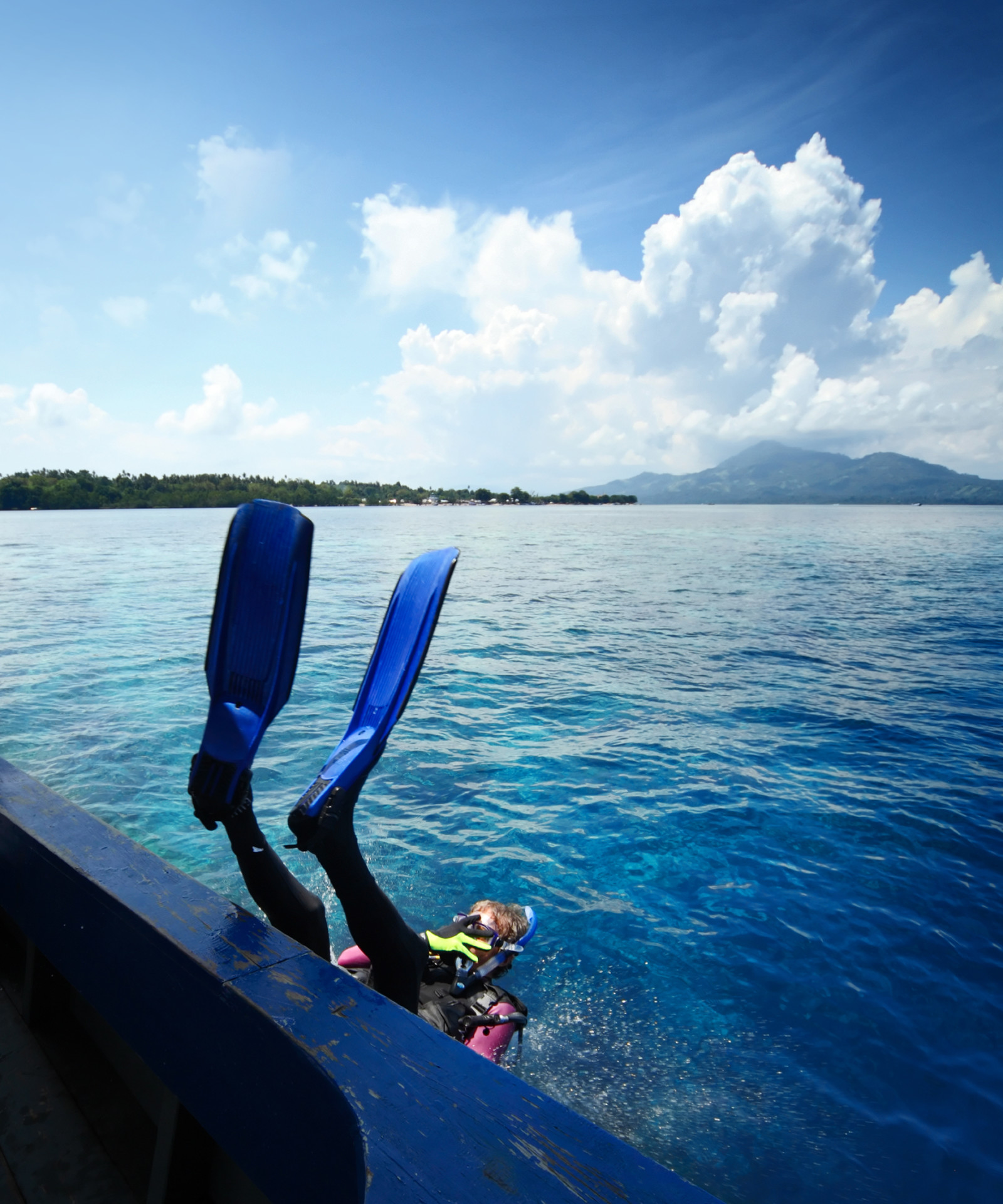
Why Do Scuba Divers Go in Backwards? (+3 Alternative Entries)
-
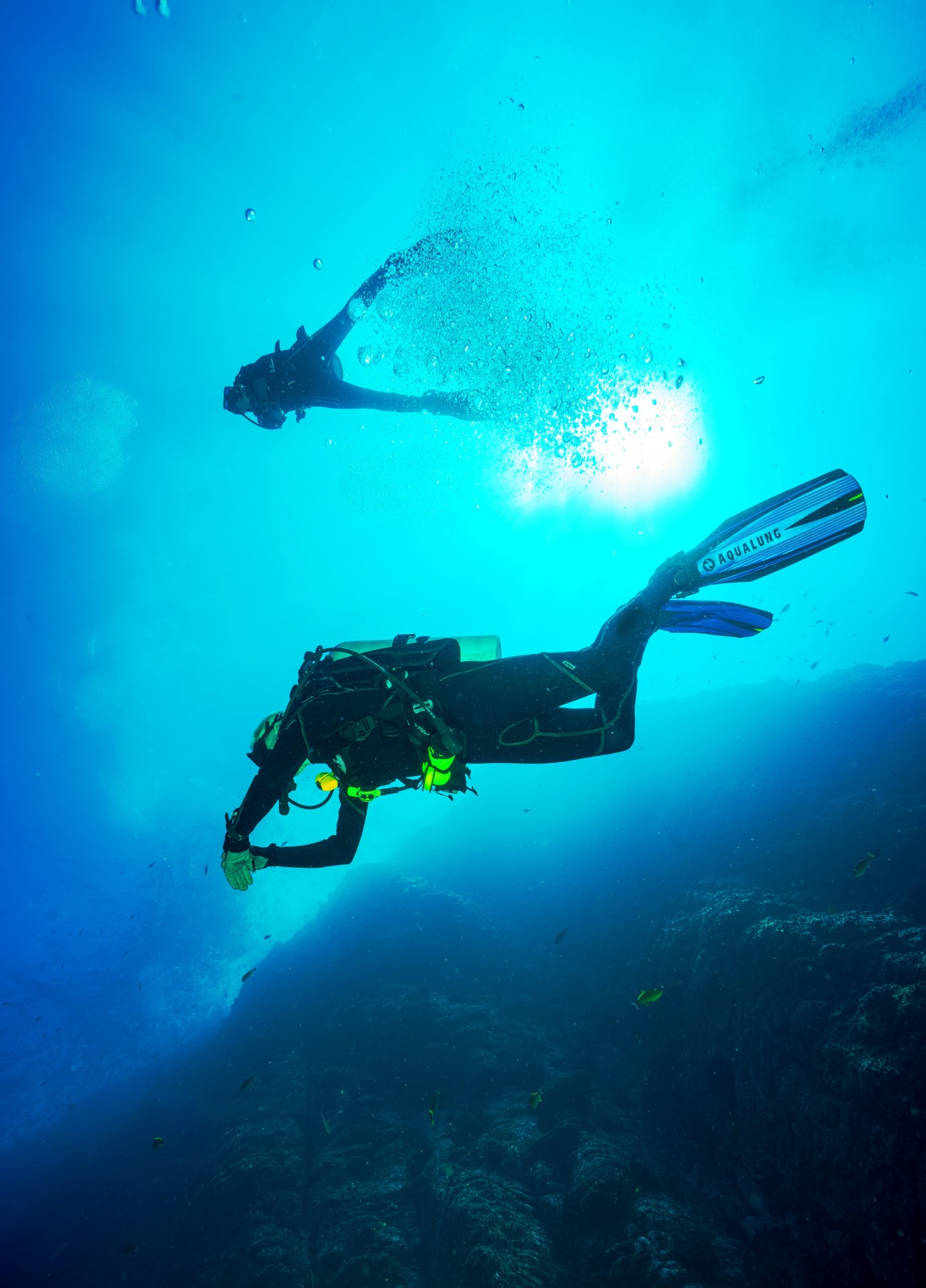
How Do Scuba Divers Sink and Float? (+Tips to Get It Right)









